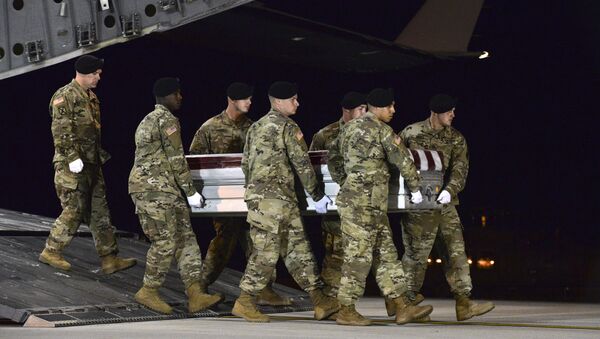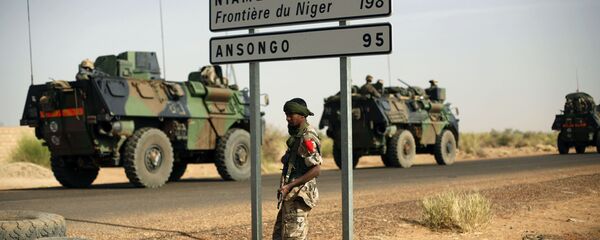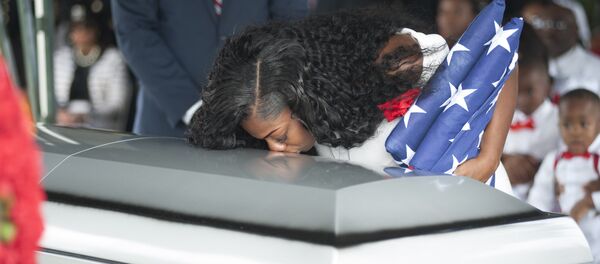The report, compiled by US Africa Command (AFRICOM), calls for a slashing of US ground missions in Niger — and for missions to require approval from AFRICOM leaders in Stuttgart, Germany, or the Pentagon instead of commanders on the ground.
US soldiers in Niger are not authorized to engage enemy combatants except in self-defense, but AFRICOM's field commanders in Niger have the authority to send them on reconnaissance patrols. This proved controversial when it was found that the US soldiers who were ambushed were conducting a reconnaissance sortie in an area where Islamic militant groups were known to operate.
The report also found several "missteps" in the handling of the mission, including "a breakdown in communications that may have stemmed from a failure by members of the American and Nigerien team, and their superiors, to check their equipment before heading out on the Oct. 4 mission."
When asked about the report on Sunday, US Defense Secretary James Mattis said that he had yet to receive the final version. "I would expect it as soon as the AFRICOM commander has reviewed it," he said. "It is extensive. It is thousands of pages long."
The US has maintained forces in Niger since at least 2013 to coordinate with Niamey against Islamic militant groups active in the region. The force started out as 100 US soldiers to operate unarmed reconnaissance drones, but the mission has ballooned to include armed Reaper drones as well as more than 800 US soldiers and. Their mission is to aid in the quest to "defeat violent extremism in Africa" and respond to the "global threat with foreign fighters," according to US Chairman of the Joint Chiefs of Staff Gen. Joseph Dunford in October.
The October 4 ambush occurred near the village of Tongo Tongo along the border between Niger and neighboring Mali, about 120 miles from the Nigerien capital of Niamey. A dozen US soldiers were accompanying 30 Nigerien soldiers in a sortie searching for a local Islamic militant, although the Pentagon has refused to disclose the specifics of the US mission.
The militants sprang an ambush on the US and Nigerien troops, opening fire on them with machine guns and destroying their vehicles with rocket-propelled grenades. The battle ended when French air support stationed in Mali arrived, sending the militants into retreat.
The militants are believed to be with a new branch of Daesh that has formed, the so-called Islamic State in the Greater Sahel (ISGS). Other groups such as the local al-Qaeda offshoot and the infamous Boko Haram have also made their presence known in the region, but have rarely ranged outside of it.
The incident became a major talking point as many Americans, including some lawmakers, expressed surprise that the US maintained a military presence in Niger at all.
But the US maintains a military presence in 51 of the 54 African countries: only Eritrea, Equatorial Guinea and Guinea-Bissau are exempt. The bulk of resources are concentrated in Niger, the beleaguered Libya and Somalia — the latter two of which are in the midst of civil wars that include Islamic militant factions — and Djibouti, a tiny nation that reaps millions in revenue from allowing foreign countries such as China, France, Italy and Japan to maintain military bases on its soil.





